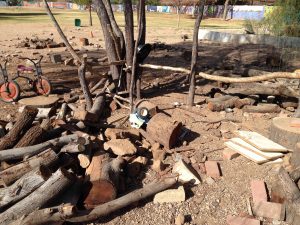 Lately I’ve had an influx of information on two topics, play and leadership. A curious pair, the two have coalesced at this time of year when I am hyper-aware of the fact that families are deciding if they will be able or want to continue sending their children to the Seed for another year. Especially once children are school age, it’s a decision carrying more weight, given that most of the alternatives, public or charter schools, are free. It raises the question: Why the Seed?
Lately I’ve had an influx of information on two topics, play and leadership. A curious pair, the two have coalesced at this time of year when I am hyper-aware of the fact that families are deciding if they will be able or want to continue sending their children to the Seed for another year. Especially once children are school age, it’s a decision carrying more weight, given that most of the alternatives, public or charter schools, are free. It raises the question: Why the Seed?
An individual who has raised my awareness about leadership lately is Simon Sinek, author of Start with Why and Leaders Eat Last. In a TED talk on leadership (http://www.ted.com/talks/simon_sinek_how_great_leaders_inspire_action.html), he speaks of what he calls “the golden circle,” which includes three key words: how, what and why. He describes businesses (e.g. Apple) and individuals (MLK) who have experienced success, not because of how or what they’ve done, but because they were able to articulate WHY they do what they do and what they believe in. This idea has been floating around in my mind lately and I wanted to see what would happen if we focused a professional development meeting on it. The outcome was extraordinary.
As a staff we have talked about play several times and revisit the topic as more information is available. At our meeting we watched Sinek’s TED talk, then discussed some of the highlights of the most recent article received on play, about giving childhood back to children (http://www.independent.co.uk/voices/comment/give-childhood-back-to-children-if-we-want-our-offspring-to-have-happy-productive-and-moral-lives-we-must-allow-more-time-for-play-not-less-are-you-listening-gove-9054433.html). The author, Peter Gray, writes: “The most important skills that children everywhere must learn in order to live happy, productive, moral lives are skills that cannot be taught in school. Such skills cannot be taught at all. They are learned and practiced by children in play. These include the abilities to think creatively, to get along with other people and cooperate effectively, and to control their own impulses and emotions.”
When I read this section, I thought of the Seed. Although he says these skills can’t be taught in school, or taught at all, I think we come pretty close to it. This became the starting point to our staff meeting focused on articulating why we do what we do and why we believe it is important. Teachers talked about gardening and how it’s a metaphor for life, witnessing how something starts and finishes, how things are interconnected. There were words about children learning to try new foods, especially those they’ve grown themselves, and how this leads to them feeling safe to trust and take reasonable risks. More conversation followed about raising children’s awareness so they’ll ask questions and use their voices when the earth is being mistreated, such as too much unnecessary plastic packaging. One teacher told a story from that very day about the kindness of a child toward a friend, as she spontaneously offered to help him solve a problem. Teachers who have been on the staff for decades engaged respectfully in dialogue with teachers just beginning their careers.
When the meeting moved toward closure, it was clear that one of the reasons we do what we do, especially incorporating play in so many school learning experiences, is because it’s good for the children and good for the world. One of the teachers beautifully summarized it this way:
“We believe that children become resilient, successful members of society when they are given a safe environment where they can practice problem solving, be creative, and strive toward challenging goals while being supported by loving adults. Play provides children with authentic opportunity to do just this, while also building self-confidence and social skills.”
At the Seed we’re cultivating the innovators and leaders of tomorrow. If you’re not sure about staying or leaving, perhaps you’ll consider lingering for awhile.
